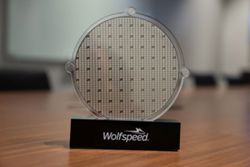
China’s smart home devices sector is expected to see explosive growth in the next few years, thanks to superfast 5G coverage, AI and the Internet of Things (IoT), experts said. — China Daily
SHANGHAI: Air conditioners that automatically control the humidity and temperature of a room based on their self-learning ability to track users’ habits have already become part of people’s daily lives. In the era of artificial intelligence (AI), almost every home appliance can be controlled through voice commands, facial recognition or by using mobile devices remotely.
Cutting-edge digital technologies are rapidly transforming many traditional industries and making life more convenient.
China’s smart home devices sector is expected to see explosive growth in the next few years, thanks to superfast 5G coverage, AI and the Internet of Things (IoT), experts said.
A report from global market research company International Data Corp (IDC) said that the shipments of smart home equipment in China reached 260 million units last year, an increase of more than 17% year-on-year (y-o-y) and the figure is expected to amount to 540 million units in 2025, with total sales revenue surpassing 800 billion yuan.
Global shipments of smart home devices declined for the first time in 2022 as shipments fell 2.6% y-o-y to 871.8 million units, IDC said.
The consultancy forecast a modest 2.2% growth in smart home device shipments in 2023 as the global economy recovers. This growth is likely to continue through 2027 with worldwide shipments reaching 1.23 billion units in 2027.
Meanwhile, China has become the world’s largest consumption market for smart home devices, accounting for a 50% to 60% share in the global smart home sector, according to market research company AskCI Consulting.
Chinese home appliance manufacturers are accelerating steps to leverage state-of-the-art 5G, AI and IoT technologies to promote the upgrade and iteration of products. IoT refers to a network of objects with software or sensors that allow data exchanges.
Haier Smart Home, a subsidiary of China’s largest home appliances manufacturer Haier Group, built a 5G-powered IoT ecosystem by providing customised solutions that link together multiple home appliance products.
The ecosystem is powered by Haier’s industrial Internet platform COSMOPlat, which is designed for companies to customise products quickly by collecting and analysing data from consumers, suppliers and factories while boosting productivity and cutting costs.
Consumers can be involved in the process of product design, research and development, production, manufacturing, sales and marketing.
Haier’s “Internet of Clothing” includes not only machines that wash but can also oversee everything to do with clothing, including style, shopping and other types of maintenance and storage.
Li Huagang, president of Haier Smart Home, said: “In the era of 5G and IoT, what users need are not homogeneous products but customised solutions to meet their personal preferences. We are willing to introduce tailor-made services for more families.”
He said that the company doesn’t aim to sell just single household appliances but to provide personalised smart home systems.
Haier’s IoT service model offers flexible and customised options, from kitchen design and construction to the purchasing, delivery and installation of whole suites of appliances.
Pan Xuefei, a senior analyst at IDC, said 5G and artificial intelligence of things (AIoT), will play a key role in bolstering the connectivity among different smart home devices in various application scenarios and facilitating the interaction process between human beings and machines.
AIoT refers to the combination of AI technologies with IoT infrastructure to improve human-machine interactions and enhance data management and analytics.
Pan said these innovative technologies, such as voice interaction and facial recognition, have been gradually applied in smart speakers, security surveillance equipment and other smart home devices to enhance user experience and enrich the functions of related products.
“China’s smart home industry is fast developing, fuelled by advances in 5G, IoT, big data and other technologies,” said Zhang Yanbin, an independent researcher in the home appliances sector.
He added that along with people’s increasing desire for a better quality of life, the AI-enabled smart home sector has a promising future.
Chinese home appliance manufacturer Midea Group has launched an IoT operating system backed by Huawei Technologies Co’s HarmonyOS.
The IoT OS helps link smart home appliances made not only by Midea but also by other manufacturers, and provides more flexibility for smart home appliance ecosystems, said Xiang Jiangxu, vice-president and chief technology officer of Midea IoT.
The system helps reduce the costs of linking different brands and greatly enhances the ability to coordinate and innovate in the smart home appliances industrial chain, Xiang said.
It also provides users with more convenient and intelligent services.
China announced a raft of measures in July to spur consumer spending on household items, as part of a broader drive to bolster domestic demand and shore up the world’s second-largest economy.
According to a notice released by the Commerce Ministry and 12 other departments, the country will support enterprises to use IoT, cloud computing and AI to accelerate the research and development of smart home appliances, smart security facilities, smart lighting, smart audio and video entertainment products.
Chinese smart kitchen and bathroom products maker Jomoo Group has applied advanced digital technologies such as AI, robotics, cloud computing and big data to the production lines of smart toilets, faucets, bathrooms, wardrobes and cabinets.
Lin Xiaofa, chairman of Jomoo, said total sales of the company have exceeded 50 billion yuan in the past three years, with an annual growth rate of over 30% on average, despite the challenges posed by the Covid-19 pandemic.
Lin said Jomoo will intensify efforts to build more factories and speed up the intelligent and digital transformation of the manufacturing sector. — China Daily/ANN










































